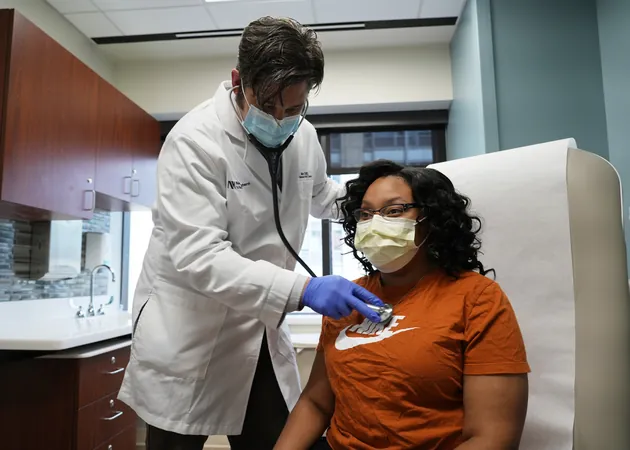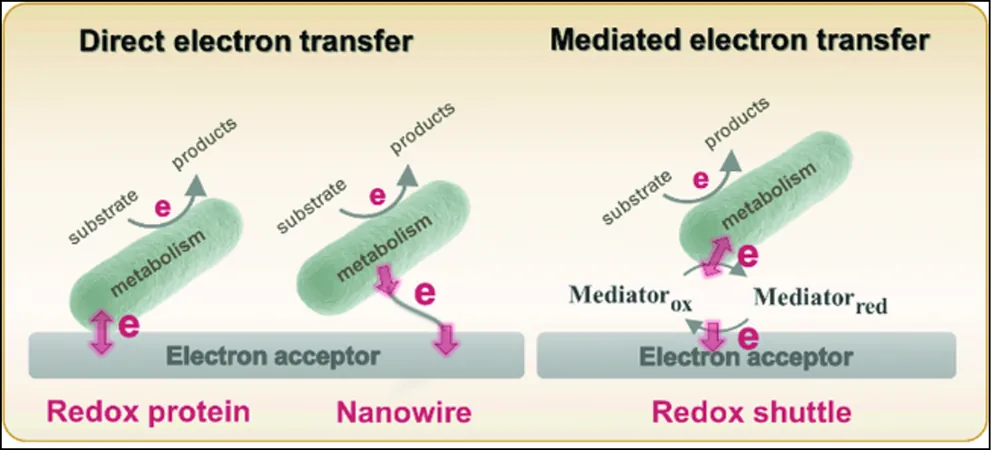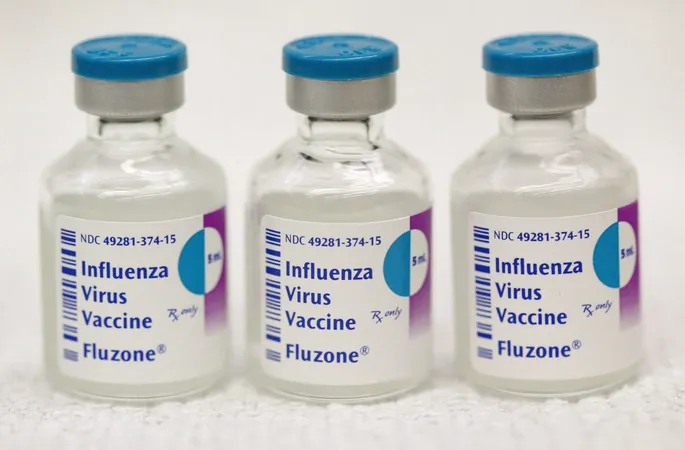
Unlocking the Mystery of Long COVID: How Abnormal Lung CT Scans Could Unveil New Treatments for Pulmonary Fibrosis
2024-10-07
Author: Wei
Introduction
Long COVID is a puzzling aftermath affecting nearly one in three individuals who recovered from COVID-19, with the CDC reporting that around one in 13 adults in the United States currently experience lingering symptoms. These perplexing symptoms range from brain fog and chest pain to debilitating shortness of breath. A recent groundbreaking study published in Nature Immunology sheds light on how abnormal lung CT scans in long COVID patients could play a pivotal role in preventing pulmonary fibrosis, a potentially irreversible lung condition.
Study Findings
Researchers at Northwestern Medicine's Comprehensive COVID-19 Center (CCC) discovered that many patients referred for long COVID symptoms exhibited continuous abnormalities in their lung CT scans. While some patients showed signs of recovery, others were left dealing with persistent scar tissue. This condition has been termed respiratory post-acute sequelae of COVID-19 (PASC) with radiographic abnormalities (RPRA).
Partnering with esteemed institutions like Brigham and Women’s Hospital, The Ohio State University, and Duke University, the scientists utilized state-of-the-art gene expression technology alongside CT scan analysis. This approach helped pinpoint specific cells and molecules responsible for the lung abnormalities in long COVID patients, paving the way for more effective future treatments.
Research Oversight
Marc Sala, MD, who co-directed the study, emphasized the urgency of understanding long COVID. "Currently, there are no FDA-approved treatments or widely accepted guidelines for long COVID management. Through our research, we are identifying the cells and biological processes that contribute to these radiographic abnormalities, which also parallel the mechanisms leading to pulmonary fibrosis from various other conditions.”
Patient Demographics
Evaluating a cohort of 35 patients presenting long COVID symptoms between November 2020 and May 2022, the research team found that the majority were experiencing significant respiratory issues. Here’s a snapshot of the patient demographics:
- Median Age: 62 years (ranging from 32 to 83)
- Gender: 43% female
- Ethnicity: 66% white, 17% Black, and 20% Hispanic
- Respiratory Symptoms: 97% reported shortness of breath, while 69% had a persistent cough.
- Of the 26 hospitalized patients, 17 required intensive care, and two ultimately underwent lung transplantation.
- Notably, 43% needed supplementary oxygen therapy.
CT Scan Analysis
The study revealed critical insights when analyzing CT scans taken approximately 145 days post-infection. Alarmingly, 39% of patients exhibited signs of pulmonary fibrosis, while 22% showed inflammatory changes. In a subset of patients, lung fluid samples collected as far as 1.5 years post-COVID indicated significantly elevated pro-inflammatory molecules, further driving immune cell accumulation in the lungs.
Immune Cell Influx
Researchers noted a persistent influx of immune cells, including neutrophils and monocytes, correlating with the severity of the CT scan changes. Monocyte-derived macrophages, essential components in the development of pulmonary fibrosis, did not seem to transition to a reparative state, which is crucial for recovery.
"What shocked us was the ongoing presence of these pro-inflammatory cells even a year after COVID-19 infection," Sala remarked. "This contradicts the traditional belief that infection-related inflammation resolves by this time frame. The findings highlight overlapping processes during lung injury that may serve as a gateway to enhanced treatments not only for long COVID but also for various forms of pulmonary fibrosis."
Future Research Directions
Looking ahead, the investigators aim to delve deeper into the mechanisms driving this prolonged lung inflammation manifesting as radiographic abnormalities. While patients have been administered steroids in hopes of relief, further research is needed to assess their efficacy. This study represents progress in our understanding of long COVID and its potential ramifications, which may extend to conditions affecting nearly any organ system.
"The subtle manifestations of long COVID—brain fog, rapid heart rate, fatigue—could also stem from a similar kind of chronic inflammation," Sala concluded. "Ultimately, our findings may not only unravel the complexities of COVID-19 recovery but also enrich our understanding of other chronic respiratory diseases associated with pulmonary fibrosis."
Conclusion
The implications of this research are profound. As scientists continue to probe the mysteries of long COVID, they may unlock new therapeutic avenues that can benefit countless individuals suffering from both lingering viral effects and broader pulmonary conditions. Could addressing long COVID symptoms lead to breakthroughs in treating pulmonary fibrosis? Only time and ongoing research will tell.





 Brasil (PT)
Brasil (PT)
 Canada (EN)
Canada (EN)
 Chile (ES)
Chile (ES)
 España (ES)
España (ES)
 France (FR)
France (FR)
 Hong Kong (EN)
Hong Kong (EN)
 Italia (IT)
Italia (IT)
 日本 (JA)
日本 (JA)
 Magyarország (HU)
Magyarország (HU)
 Norge (NO)
Norge (NO)
 Polska (PL)
Polska (PL)
 Schweiz (DE)
Schweiz (DE)
 Singapore (EN)
Singapore (EN)
 Sverige (SV)
Sverige (SV)
 Suomi (FI)
Suomi (FI)
 Türkiye (TR)
Türkiye (TR)